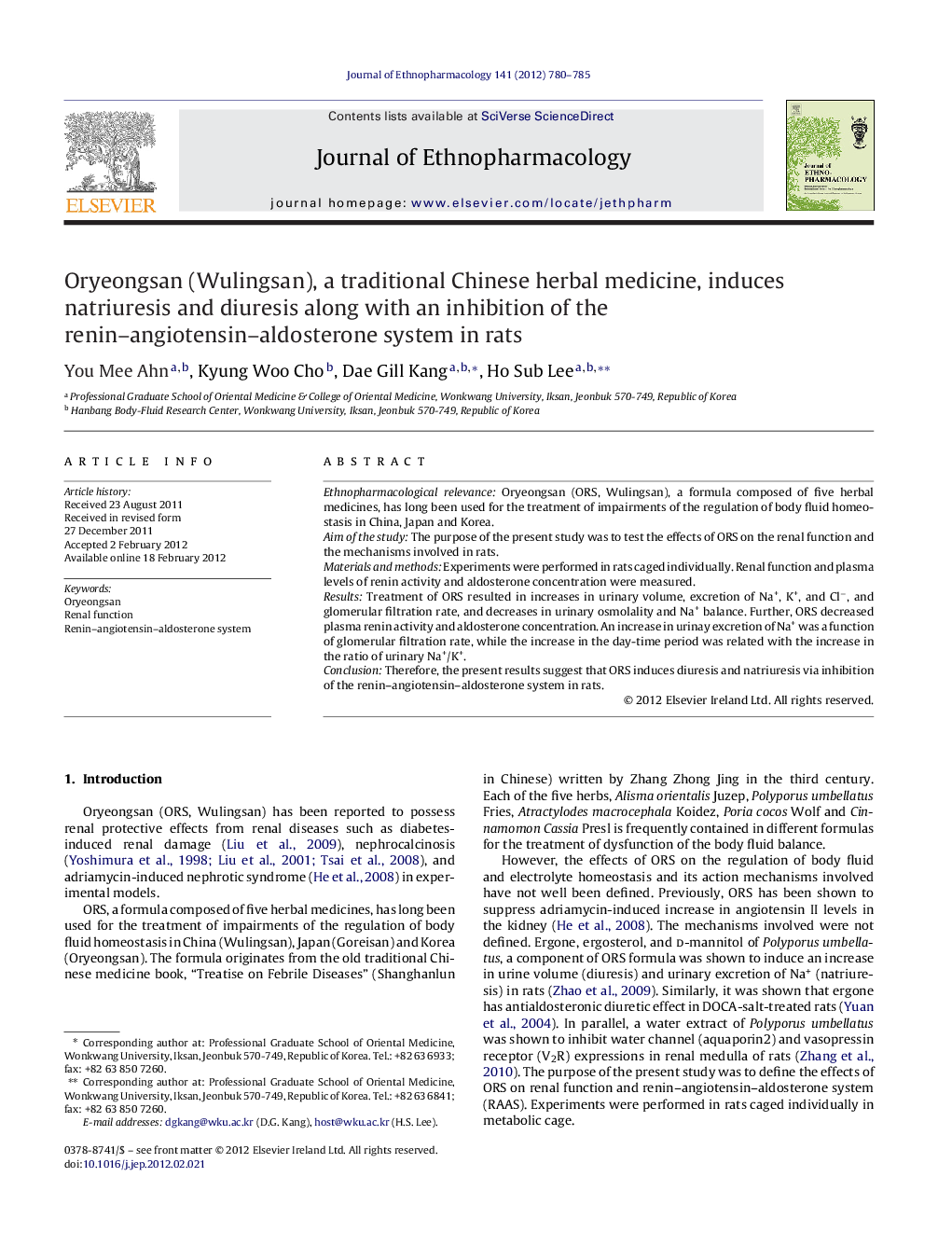| Article ID | Journal | Published Year | Pages | File Type |
|---|---|---|---|---|
| 5837946 | Journal of Ethnopharmacology | 2012 | 6 Pages |
Ethnopharmacological relevanceOryeongsan (ORS, Wulingsan), a formula composed of five herbal medicines, has long been used for the treatment of impairments of the regulation of body fluid homeostasis in China, Japan and Korea.Aim of the studyThe purpose of the present study was to test the effects of ORS on the renal function and the mechanisms involved in rats.Materials and methodsExperiments were performed in rats caged individually. Renal function and plasma levels of renin activity and aldosterone concentration were measured.ResultsTreatment of ORS resulted in increases in urinary volume, excretion of Na+, K+, and Clâ, and glomerular filtration rate, and decreases in urinary osmolality and Na+ balance. Further, ORS decreased plasma renin activity and aldosterone concentration. An increase in urinay excretion of Na+ was a function of glomerular filtration rate, while the increase in the day-time period was related with the increase in the ratio of urinary Na+/K+.ConclusionTherefore, the present results suggest that ORS induces diuresis and natriuresis via inhibition of the renin-angiotensin-aldosterone system in rats.
Graphical abstractDownload high-res image (122KB)Download full-size image
